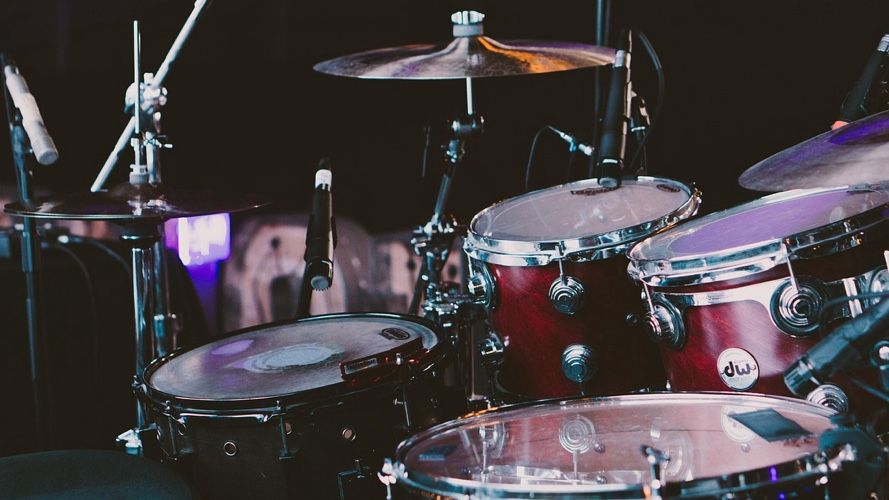Music camps for kids: Day vs overnight

Introduction
If your child is passionate about music and you're exploring summer camp options for the first time, you're in the right place. Music camps are a fantastic way to fuel creativity, develop musical skills, and build confidence-whether your child is a budding singer, pianist, or future rock star.
One big decision many parents face is whether to choose a day music camp or an overnight one. Each comes with its own benefits, structure, and considerations-especially for first-time campers. In this guide, we’ll break down everything you need to know to choose the best fit for your child.
Key takeaways:
- Music camps help children grow musically, socially, and emotionally.
- Day camps offer flexibility and are great for younger or first-time campers.
- Overnight music camps foster deeper friendships and immersive learning.
- Your child’s readiness and comfort level are key to choosing the right option.
- Look for programs with strong safety standards and experienced staff.
Table of Contents
What is a music camp?
Music camps are specialized summer programs where kids and teens explore vocal or instrumental training, music theory, performance, and often songwriting. These camps are designed for all levels-from beginners picking up their first instrument to advanced students preparing for auditions or conservatory training.
For day campers
Day music camps typically run from morning through mid-afternoon and are held at local community centers, schools, or performing arts venues. Kids return home each evening. These programs balance learning and fun, with small group lessons, practice time, and musical games. Staff often includes local music teachers and camp counselors trained in child development.
For overnight campers
Overnight music camps offer a much more immersive environment. Campers stay on-site for a week or more and participate in rehearsals, workshops, and group performances day and night. These camps often take place at universities or dedicated campgrounds. Staff usually includes experienced music educators, college-level instructors, and trained counselors offering 24/7 supervision.
Typical camp activities
No matter the format, music camps combine structured learning with creativity and play. Activities might include:
- Instrument or vocal lessons (group or individual)
- Music theory workshops
- Band or ensemble rehearsals
- Songwriting and composing sessions
- Performance practice or mini-recitals
For day campers
Activities are typically more varied, with shorter time blocks to keep kids engaged throughout the day. There’s usually time for snack breaks, outdoor games, and creative exploration through different musical genres.
For overnight campers
Overnight camps allow campers to go deeper. Students might spend several days working on a group performance or even recording original compositions. Evening jam sessions, talent shows, and cabin sing-alongs are common.
Sample daily schedule
Day camp schedule
| Time | Activity |
|---|---|
| 8:30 AM | Drop-off & warm-up games |
| 9:00 AM | Instrument instruction |
| 10:30 AM | Snack & creative break |
| 11:00 AM | Ensemble rehearsal |
| 12:30 PM | Lunch |
| 2:30 PM | Pickup |
Overnight camp schedule
| Time | Activity |
|---|---|
| 7:30 AM | Wake-up & breakfast |
| 9:00 AM | Sectional practice |
| 12:00 PM | Lunch & free time |
| 2:00 PM | Ensemble rehearsal |
| 5:30 PM | Dinner |
| 7:00 PM | Campfire or jam session |
What to Expect as a Parent
Sending your child to a music camp-especially for the first time-can feel both exciting and a little nerve-wracking. Fortunately, most camps are set up to keep parents informed and involved while fostering independence in campers.
- Orientation and prep materials:Camps typically send detailed guides ahead of time so you know exactly what to pack and what your child can expect.
- Daily structure:Expect a mix of rehearsals, lessons, performances, and free time. Day camps offer structured pick-up/drop-off times, while overnight programs handle all logistics.
- Communication:While day camps may provide daily updates, overnight camps often send periodic emails or allow limited camper-parent contact to encourage independence.
- Health and safety:Camp staff are trained in first aid, and many have on-site medical personnel. You’ll provide medical forms and emergency contacts ahead of time.
Ultimately, music camp is designed to be a supportive environment for growth-not just in musical talent but in confidence, social skills, and self-reliance.
Benefits of Music Camps
Music camps offer more than just lessons-they immerse kids in a creative environment that nurtures talent and builds lifelong skills.
- Focused learning:Kids receive hands-on instruction from professionals, often improving faster than during weekly lessons alone.
- Confidence building:Performing in front of peers or an audience helps children overcome stage fright and believe in their abilities.
- Creative expression:Whether it’s composing a new song or improvising during a jam session, campers explore new sides of their musicality.
- Social connections:Kids bond with others who share their passion, forming friendships and learning teamwork through ensemble work.
- Inspiration and motivation:Being around like-minded peers and skilled mentors often reignites a child’s enthusiasm for practice and progress.
Whether your child is a beginner or a seasoned performer, a music camp can be a transformative experience that carries benefits far beyond the final recital.
Tips for parents
- Talk to your child:Ask how they feel about being away overnight or if they’d prefer coming home each day.
- Do a trial run:If you’re leaning toward overnight, consider starting with a sleepover at a relative’s house or a short weekend camp.
- Check for performances:Many camps hold end-of-session shows-ask if parents can attend and how they work.
- Understand safety policies:Ask about counselor-to-camper ratios, background checks, and what happens if a child gets sick or homesick.
- Pack with intention:Whether it’s a backpack or a trunk, include personal items that help your child feel confident and comfortable.
How to choose between day and overnight music camps
The right format depends on your child’s age, musical goals, and comfort level away from home. Day music camps are ideal for kids ages 6–11 or beginners just starting to explore an instrument. They offer structured lessons, ensemble practice, and creative play-without the need for overnight separation.
Overnight music camps tend to attract older kids (usually 10+) who are eager to dive deeper into their craft. These immersive programs often include full-day rehearsals, evening performances, and time to bond with other music-loving peers. They’re a great fit for children with a strong interest in music and growing independence.
Still unsure? Our day vs overnight camp guide breaks down everything you need to know.
You could also consider a performance arts camp that combines music with other creative disciplines like dance or theater. These camps often offer both day and overnight options, allowing you to choose what works best for your child. You can also learn more about performance arts camps in our performance arts camp guide.
FAQ
- What age is best for overnight music camp?
- Most overnight music camps are best suited for kids aged 10 and up, when they’re more independent and ready for extended time away from home.
- Are day music camps as effective as overnight camps?
- Yes, day music camps still provide focused instruction and socialization, making them a great option for younger kids or first-time campers.
- How do I prepare my child for their first music camp?
- Start by reviewing the camp’s schedule, helping them practice their instrument at home, and packing familiar items to ease any nerves.
- What should my child bring to music camp?
- They should bring their instrument (if required), sheet music, a water bottle, comfortable clothes, and any prescribed medications or comfort items.
- How can I find a reputable music camp?
- Look for ACA-accredited camps or ask your child’s music teacher for recommendations.
Conclusion
Choosing between a day or overnight performing arts camp comes down to your child’s age, confidence, and goals. Both offer amazing opportunities for creative growth, self-expression, and friendships. Think about what fits your family best, start small if needed, and know that every experience builds your child’s love for the arts.



